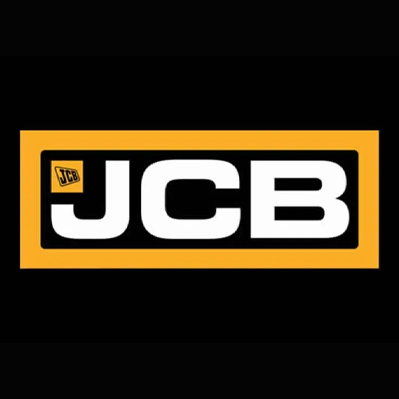Description
JCB is a British multinational manufacturer of equipment for construction, agriculture, waste handling, and demolition, founded in 1945 and based in Rocester, Staffordshire, England. The word "JCB" is also often used colloquially as a generic description for mechanical diggers and excavators and now even appears in the Oxford English Dictionary, although it is still held as a trademark.
History
Joseph Cyril Bamford Excavators Ltd. was founded by Joseph Cyril Bamford in October 1945 in Uttoxeter, Staffordshire, England. He rented a lock-up garage 3.7 by 4.6 m (12 by 15 ft). In it, using a welding set which he bought second-hand for £2-10s (= £2.50) from English Electric, he made his first vehicle, a tipping trailer from war-surplus materials. The trailer's sides and floor were made from steel sheet that had been part of air raid shelters. On the same day as his son Anthony was born, he sold the trailer at a nearby market for £45 (plus a part-exchanged farm cart) and at once made another trailer. At one time he made vehicles in Eckersley's coal yard in Uttoxeter. The first trailer and the welding set have been preserved.
In 1948, six people were working for the company, and it made the first hydraulic tipping trailer in Europe. In 1950, it moved to an old cheese factory in Rocester, still employing six. A year later, Bamford began painting his products yellow. In 1953, he developed JCB's first backhoe loader, and the JCB logo appeared for the first time. It was designed by Derby Media and advertising designer Leslie Smith. In 1957, the firm launched the "hydra-digga", incorporating the excavator and the major loader as a single all-purpose tool useful for the agricultural and construction industries.
By 1964, JCB had sold over 3,000 3C backhoe loaders. the next year, the first 360-degree excavator was introduced, the JCB 7. In 1978, the Loadall machine was introduced. The next year, the firm started its operation in India. In 1991, the firm entered a joint venture with Sumitomo of Japan to produce excavators, which ended in 1998. Two years later, a JCB factory was completed in Pooler near Savannah, Georgia, in the US, and the next year a factory was opened in Brazil.
In 2005, JCB bought a company, purchasing the German equipment firm Vibromax. In the same year, it opened a new factory in Pudong, China. Planning of a new £40 million JCB Heavy Products site began following the launch of an architectural design competition in 2007 managed by RIBA Competitions, and by the next year, the firm began to move from its old site on Pinfold Street in Uttoxeter to the new site beside the A50; the Pinfold Street site was demolished in 2009. During that year, JCB announced plans to make India its largest manufacturing hub. Its factory at Ballabgarh in Haryana was to become the world's largest backhoe loader manufacturing facility. Although JCB shed 2,000 jobs during the 2008 global financial crisis, in 2010 it rehired up to 200 new workers.
In 2013, JCB set up its fourth manufacturing facility in India. In 2014, it was reported that three out of every four pieces of construction equipment sold in India was a JCB, and that its Indian operations accounted for 17.5% of its total revenue. JCB-based memes have also become prevalent in India.
JCB began manufacturing 20-30 tonne excavators in Solnechnogorsky District in Russia in 2017. Due to trade sanctions imposed following the 2022 Russian invasion of Ukraine, JCB suspended its operations in Russia in March 2022.






















